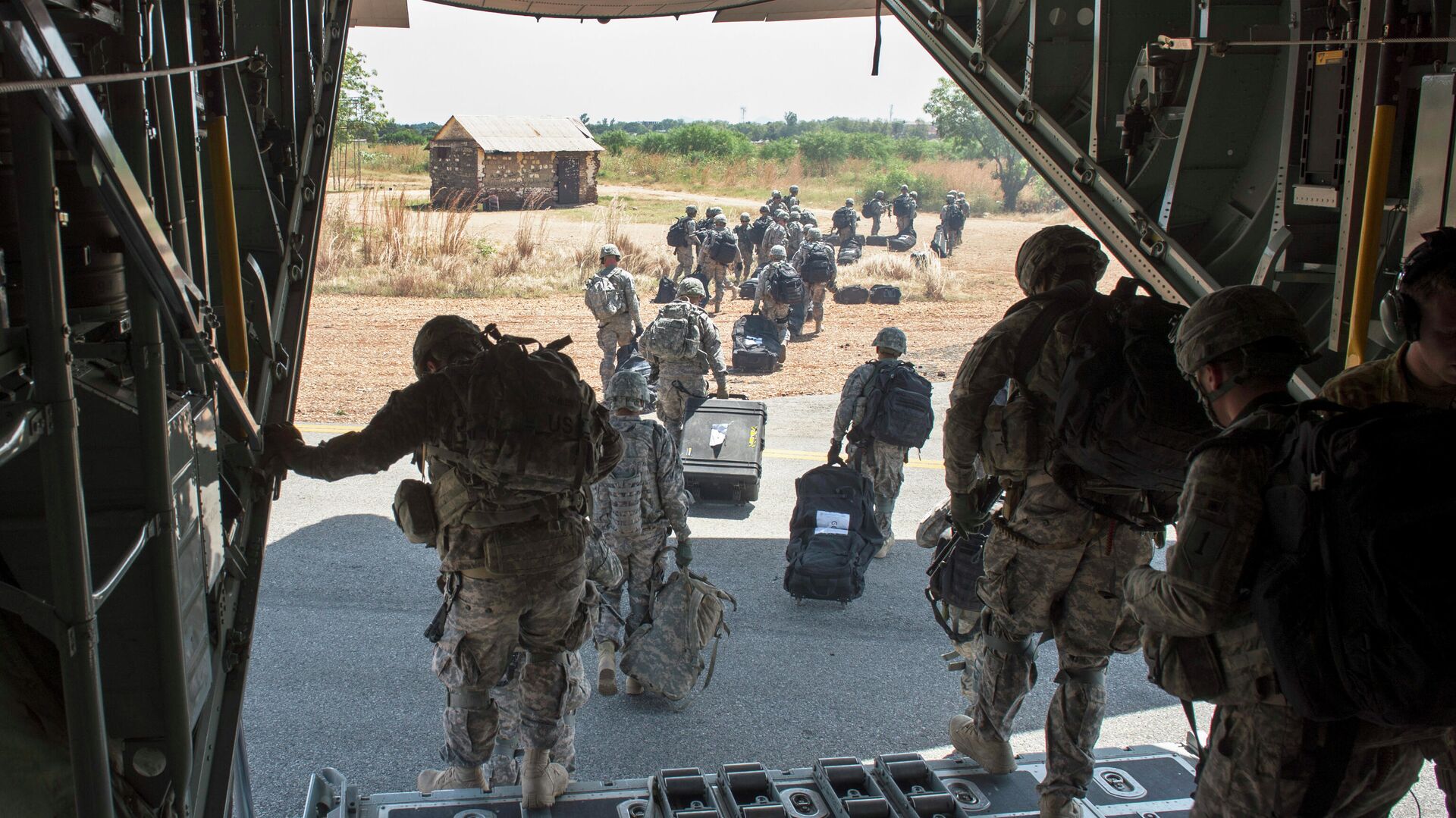https://sputnikglobe.com/20221021/is-chaos-the-deliberate-strategy-how-pentagon-failures-enabling-putschists--terrorists-in-africa-1102507523.html
Is Chaos the Deliberate Strategy? How Pentagon 'Failures' Enabling Putschists & Terrorists in Africa
Is Chaos the Deliberate Strategy? How Pentagon 'Failures' Enabling Putschists & Terrorists in Africa
Sputnik International
The Flintlock training program of the US Special Operations Command Africa (SOCAFRICA) seems to have become a cradle for rebels, while US military forces... 21.10.2022, Sputnik International
2022-10-21T14:12+0000
2022-10-21T14:12+0000
2023-04-13T12:44+0000
africa
opinion
us
sahel region
regime change
terrorism
france
military & intelligence
west africa
africa in details
https://cdn1.img.sputnikglobe.com/img/07e5/0b/17/1090955564_0:159:3076:1889_1920x0_80_0_0_db281b34105af349b147c2b6ce43d609.jpg
Earlier this week, Rolling Stone shed light on a Pentagon report which was "quietly released late last month" that unveiled systemic US military failures across Africa. The report revealed that US military efforts have proven ineffective in degrading and disrupting violent extremist organizations who continue to gain ground across the continent.However, there’s more. African officers trained and advised by US special operators keep overthrowing governments in their respective nations, according to the magazine.In the early 2000’s, the Pentagon ramped up military engagement in Africa by building a network of outposts from Senegal to Kenya, Tunisia to Gabon, and dispatching US military specialists and Special Op forces to at least 22 African nations. At the time, the Department of Defense did not acknowledge the full extent of its "training" and "cooperation" activities often used as euphemisms for combat missions, Rolling Stone noted, citing Stephanie Savell, co-director of Brown University’s Costs of War Project.Many have been left wondering what the goal of this ramping up was, however.However, African academic Mustafa Mheta holds a different opinion on the dynamic of the US involvement in the continent's affairs. According to him, Washington is using security issues and interstate rivalries to gain influence in the region to maintain control over the continent in its post-colonial period.US Flintlock Program: Cradle for PutschistsFor the last twenty years, US Special Forces have provided training to the African military within the framework of SOCAFRICA’s annual Flintlock exercise in order to "strengthen the ability of key partner nations in the region to counter violent extremist organizations." However, Pentagon trainees have repeatedly been spotted fomenting regime changes, with the US doing nothing to stop or overturn the coup.Rolling Stone noted that Flintlock graduates carried out a whopping four coups in just two past years in West Africa.In 2014, Lt. Col. Isaac Zida, a US military trainee, seized power in Burkina Faso, while in 2015 former head of the nation's Flintlock Committee Gen. Gilbert Diendéré overthrew the government once again. In 2020, Col. Assimi Goïta, who worked with US Special Ops and participated in Flintlock training took power in Mali, while in 2021, Col. Mamady Doumbouya, a US Green Berets trainee, deposed Guinea’s President Alpha Condé."The United States is certainly not just an innocent bystander, but the role of the US military from the standpoint of AFRICOM is, I think, misunderstood," argued Johnson. "[T]hey will establish contacts and develop friends at the operational level, particularly on the military side. But that does not necessarily put them in a position to dictate or control events. They have the potential to influence, but not necessarily control."According to Mheta, the US Special Forces are responsible for the disturbing trend: "These special forces never help Africa in any way, but are instead used to destabilize the continent or even to foment coups in certain African states," he said. "Missions like SOCAFRICA's annual Flintlock military exercises are meant to just help them identify African surrogates to be used to serve their geopolitical interests as in staging coups. It's not a coincidence that five [sic] military coups that have happened in Africa of late, bear the hallmark of Flintlock attendees."Despite the troubling record of Flintlock trainees, the US is continuing the exercises without taking any measures to curb the regime change spree, according to Mheta. "The US is eager to continue with these types of exercises simply because they see Africa as their backyard," he said.Regime changes have long been used by the US as a tool of establishing and maintaining control over foreign nations, including the January 1893 deposing of the Hawaiian monarch Queen Liliʻuokalani, the CIA-backed 1953 coup in Iran, the 2011 ouster of Libyan leader Muammar Gaddafi or the February 2014 "Euromaidan" coup in Kiev, to name but a few.When it comes to Africa, the continent has been regularly rocked by military coups in the post-colonial period. The Conversation listed roughly 200 coups or attempted coups in Africa from the nations' various times of independence until 2012. "There was a coup attempt every 55 days in the 1960s and 1970s, and over 90% of African states had a coup experience," the media outlet pointed out. Since 2010, there have been over 40 coups or attempted coups in Africa; half of them occurring in West Africa and the Sahel, The Conversation noted, suggesting that in general, West Africa accounted for the largest number of regime changes and coup attempts in the continent's history.The Cold War has been sometimes cited as a driver for African coups during the US-Soviet rivalry. However, the collapse of the USSR and the West’s subsequent implementation of a neoliberal program in Africa hasn't brought the phenomenon to a halt. Regime changes are continuing to occur, keeping African nations in a chaotic and vicious cycle of violence.Can Western 'Security Providers' be Trusted?Likewise, western counter-terrorism operations, including the Pentagon's 20 year-long efforts across the continent or France's 8-year long Operation Burkhane in the Sahel, have not reduced swirling violence which is undermining the development of African countries.Militant Islamist violence in the Sahel has quadrupled since 2019, with the region seeing a staggering 2,612 attacks by terrorist groups, according to the Africa Center, as quoted by Rolling Stone. The 7,052 resulting fatalities account for almost 50% of all such deaths reported on the continent, with around 25% of those fatalities resulting from attacks on civilians - a 67% jump from 2021.The situation has been steadily worsening in East Africa as well, with radical Islamist al-Shabaab* militants establishing control over 70% of south and central Somalia, despite US strikes and the Biden administration's recent military buildup.An apparent lack of comprehensive strategy by AFRICOM, corruption among African elites and ongoing internal power struggles mentioned by CIA analyst Larry Johnson, could indeed contribute to the Pentagon's failure to restore law and order in the region. However, what is striking is that neither the US nor France have made any efforts to revise their surprisingly similar, and seemingly failing, strategies.Meanwhile, the examples of the Central African Republic (CAR) and Mali have indicated that nations are capable of curbing the terror threat once they replace western military instructors with Russian private contractors, such as in 2017 and 2021, respectively. The Malian government went even so far as to accuse the French military of actively assisting terrorists and deliberately fracturing the country, which eventually led to bilateral rows and the withdrawal of France's forces in 2022. Simultaneously, Niger and Burkina Faso kicked off anti-French protests accusing Paris of maintaining havoc in the Sahel. Moreover, the surge in violence in the Sahel was directly triggered by the US and French-led NATO invasion of Libya and the ousting of Muammar Gaddafi in 2011, which led to the subsequent collapse of the state and spillover of terrorist activities in neighboring nations.There are apparently two reasons for the western military intervening in Africa under the guise of counter-terror activities. First, they want to keep Russia and China or any other competitors out of the continent, according to Professor Mustafa Mheta. Second, they strive to maintain access to Africa's vast untapped resources, markets and other assets.Africa boasts roughly 12% and 9% of the world’s oil and natural gas reserves, respectively, let alone large, high-grade deposits of rare earths. The continent's population is the fastest growing in the world with a share of working-age individuals steadily increasing, presenting potential to boost economic growth, according to the Institute for Security Studies (ISS).In addition, "there are 16 countries in Africa with free-market economies" with close to a billion people, which "represents an impressive market worth tapping in a variety of ways," argued the US Foreign Policy Research Institute (FPRI) last year, referring to Cape Verde, Ghana, Liberia, Senegal, Mali, Nigeria, Namibia, South Africa, Botswana, Benin, Malawi, Mozambique, Zambia, Mauritius, Kenya and Tanzania. "Consumer and business spending in Africa is expected to top $6.6 trillion by 2030, up from $4 trillion in 2015," FPRI remarked.However, questions remain as to who will actually benefit from the continent's natural wealth and growing human resources if the US and its NATO allies continue to maintain a military presence in the region, a military presence which so far has failed to stem the terror threat and created nothing short of a factory for would-be putschists.*Al-Shabaab is a terrorist organization banned in Russia and many other countries.
https://sputnikglobe.com/20220930/burkina-faso-military-leader-deposed-constitution--transitional-charter-suspended---army-captain-1101395939.html
https://sputnikglobe.com/20221019/report-us-trained-african-troops-carried-out-at-least-eight-coups-in-west-africa-since-2008-1102065127.html
https://sputnikglobe.com/20220826/why-us-re-entry-wont-solve-somalias-security-problem--how-russia-can-save-the-day-1100025298.html
https://sputnikglobe.com/20221007/why-the-sahel-is-turning-its-back-on-france--could-russia-solve-africas-security-dilemma-1101599125.html
africa
sahel region
france
west africa
horn of africa
Sputnik International
feedback@sputniknews.com
+74956456601
MIA „Rossiya Segodnya“
2022
News
en_EN
Sputnik International
feedback@sputniknews.com
+74956456601
MIA „Rossiya Segodnya“
Sputnik International
feedback@sputniknews.com
+74956456601
MIA „Rossiya Segodnya“
opinion, us, sahel region, regime change, terrorism, france, military & intelligence, west africa, africa in details, horn of africa, pentagon
opinion, us, sahel region, regime change, terrorism, france, military & intelligence, west africa, africa in details, horn of africa, pentagon
Is Chaos the Deliberate Strategy? How Pentagon 'Failures' Enabling Putschists & Terrorists in Africa
14:12 GMT 21.10.2022 (Updated: 12:44 GMT 13.04.2023) Longread
The Flintlock training program of the US Special Operations Command Africa (SOCAFRICA) seems to have become a cradle for rebels, while US military forces deployed in almost 22 African nations to curb terrorism have failed in their objectives over the past two decades, according to Rolling Stone. What has the US been really up to on the continent?
Earlier this week, Rolling Stone
shed light on a Pentagon report which was "quietly released late last month" that unveiled systemic US military failures across Africa. The report revealed that US military efforts have proven ineffective in degrading and disrupting violent extremist organizations who continue to gain ground across the continent.
However, there’s more. African officers trained and advised by US special operators keep overthrowing governments in their respective nations, according to the magazine.
In the early 2000’s, the Pentagon ramped up military engagement in Africa by building a network of outposts from Senegal to Kenya, Tunisia to Gabon, and dispatching US military specialists and Special Op forces to at least 22 African nations. At the time, the Department of Defense did not acknowledge the full extent of its "training" and "cooperation" activities often used as euphemisms for combat missions, Rolling Stone noted, citing Stephanie Savell, co-director of Brown University’s Costs of War Project.
Many have been left wondering what the goal of this ramping up was, however.
"[T]here's an assumption, I think, at large in the world that the United States has a clear plan and objectives in what is happening on the ground there, when in fact, it's just the opposite," argued Larry Johnson, a veteran of the CIA and the State Department’s Office of Counter Terrorism, which provided training to the US Special Operations taskforce for 24 years. "It's almost reactive. There is no grand strategy. There is no long-term plan. It is more like putting out grass fires that spring up. I know from my own experience working with AFRICOM from its inception for about 10-15 years, that AFRICOM was always focused on getting training experience in the region but has not reflected any broad political strategy."
However, African academic Mustafa Mheta holds a different opinion on the dynamic of the US involvement in the continent's affairs. According to him, Washington is using security issues and interstate rivalries to gain influence in the region to maintain control over the continent in its post-colonial period.
"[This] is actually based on western imperialism's well known trick of divide and rule, and blackmail tactics," said Professor Mheta, a senior research fellow and head of the Africa Desk at Johannesburg-based think tank Media Review Network and director of internationalization at Somali National University. "This is not a new thing at all – they have always used these tricks since time immemorial."
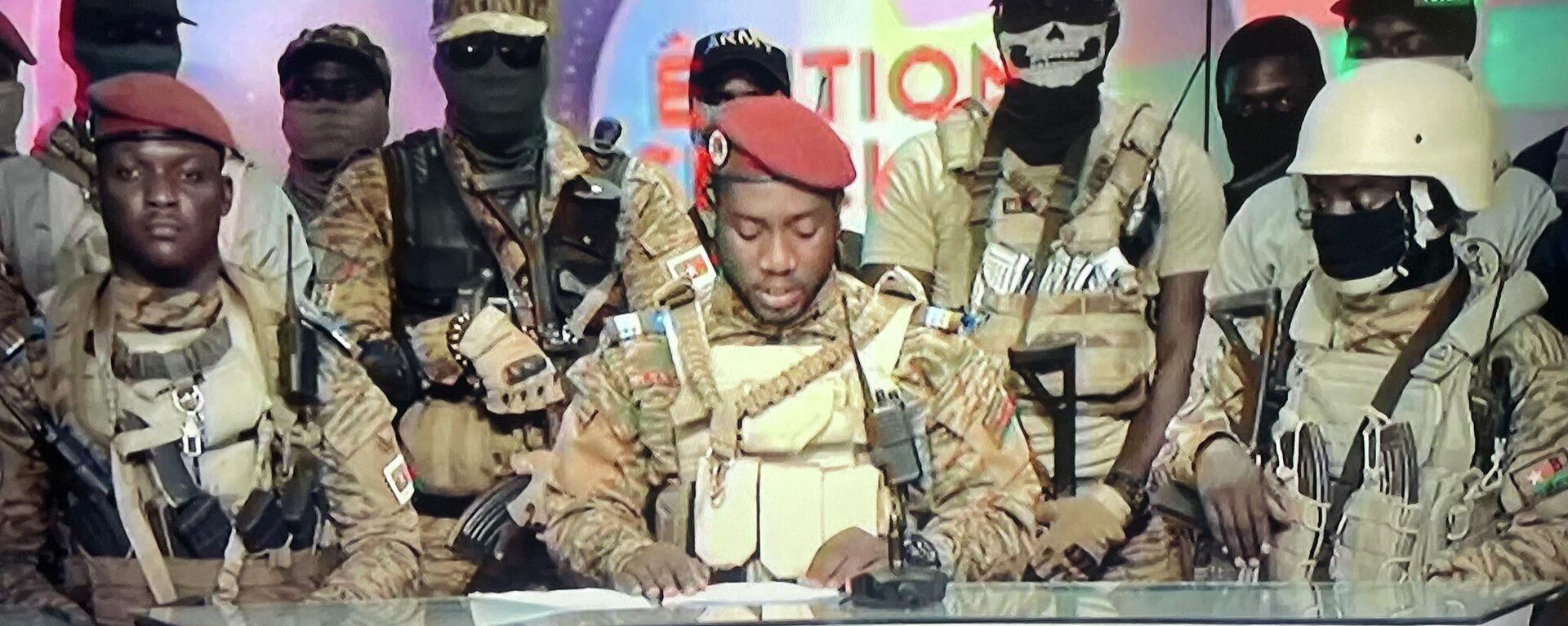
30 September 2022, 20:46 GMT
US Flintlock Program: Cradle for Putschists
For the last twenty years, US Special Forces have provided training to the African military within the framework of SOCAFRICA’s annual Flintlock exercise in order to "strengthen the ability of key partner nations in the region to counter violent extremist organizations." However, Pentagon trainees have repeatedly been spotted fomenting regime changes, with the US doing nothing to stop or overturn the coup.
Rolling Stone noted that Flintlock graduates carried out a whopping four coups in just two past years in West Africa.
In 2014, Lt. Col. Isaac Zida, a US military trainee, seized power in Burkina Faso, while in 2015 former head of the nation's Flintlock Committee Gen. Gilbert Diendéré overthrew the government once again. In 2020, Col. Assimi Goïta, who worked with US Special Ops and participated in Flintlock training took power in Mali, while in 2021, Col. Mamady Doumbouya, a US Green Berets trainee, deposed Guinea’s President Alpha Condé.
"The United States is certainly not just an innocent bystander, but the role of the US military from the standpoint of AFRICOM is, I think, misunderstood," argued Johnson. "[T]hey will establish contacts and develop friends at the operational level, particularly on the military side. But that does not necessarily put them in a position to dictate or control events. They have the potential to influence, but not necessarily control."
According to Mheta, the US Special Forces are responsible for the disturbing trend: "These special forces never help Africa in any way, but are instead used to destabilize the continent or even to foment coups in certain African states," he said. "Missions like SOCAFRICA's annual Flintlock military exercises are meant to just help them identify African surrogates to be used to serve their geopolitical interests as in staging coups. It's not a coincidence that five [sic] military coups that have happened in Africa of late, bear the hallmark of Flintlock attendees."
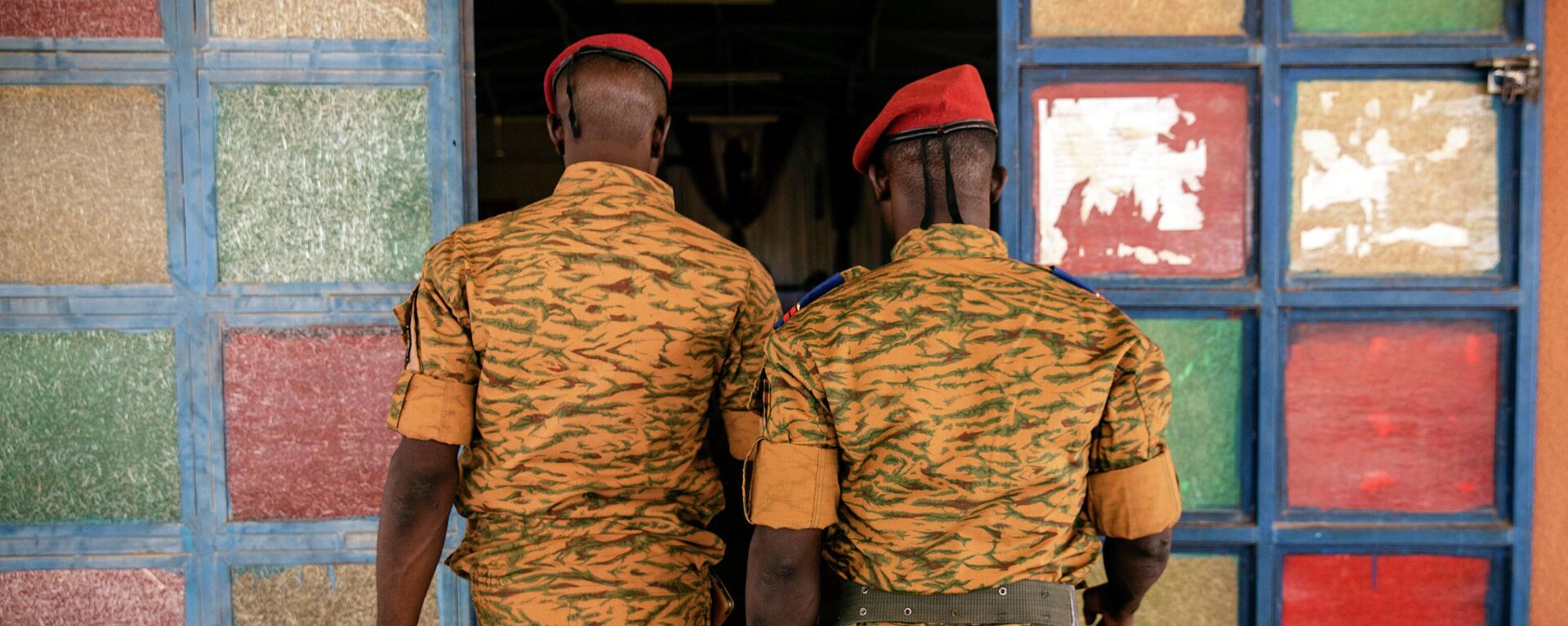
19 October 2022, 16:33 GMT
Despite the troubling record of Flintlock trainees, the US is continuing the exercises without taking any measures to curb the regime change spree, according to Mheta. "The US is eager to continue with these types of exercises simply because they see Africa as their backyard," he said.
Regime changes have long been used by the US as a tool of establishing and maintaining control over foreign nations, including the January 1893 deposing of the Hawaiian monarch Queen Liliʻuokalani, the CIA-backed 1953 coup in Iran, the 2011 ouster of Libyan leader Muammar Gaddafi or the February 2014 "Euromaidan" coup in Kiev, to name but a few.
When it comes to Africa, the continent has been regularly rocked by military coups in the post-colonial period. The Conversation
listed roughly 200 coups or attempted coups in Africa from the nations' various times of independence until 2012. "There was a coup attempt every 55 days in the 1960s and 1970s, and over 90% of African states had a coup experience," the media outlet pointed out. Since 2010, there have been over 40 coups or attempted coups in Africa; half of them occurring in West Africa and the Sahel, The Conversation noted, suggesting that in general, West Africa accounted for the largest number of regime changes and coup attempts in the continent's history.
The Cold War has been sometimes cited as a driver for African coups during the US-Soviet rivalry. However, the collapse of the USSR and the West’s subsequent implementation of a neoliberal program in Africa hasn't brought the phenomenon to a halt. Regime changes are continuing to occur, keeping African nations in a chaotic and vicious cycle of violence.
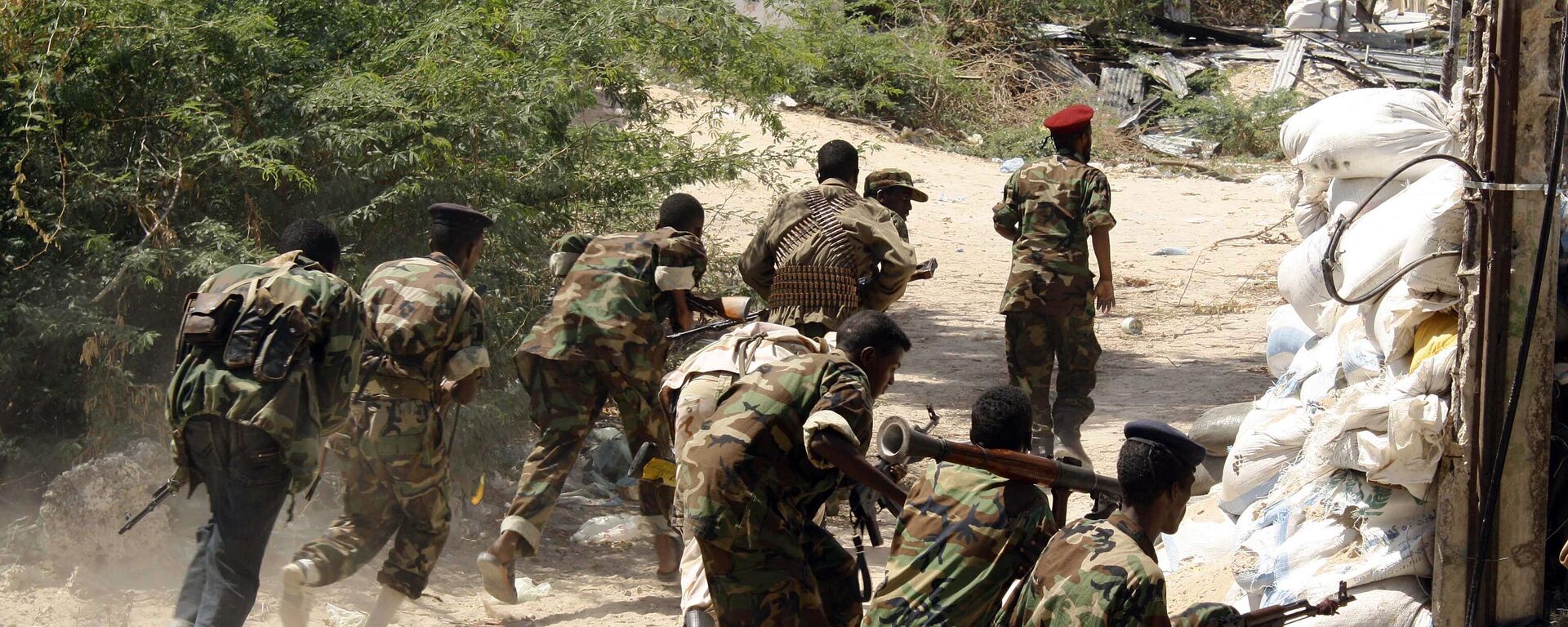
26 August 2022, 13:12 GMT
Can Western 'Security Providers' be Trusted?
Likewise, western counter-terrorism operations, including the Pentagon's 20 year-long efforts across the continent or France's 8-year long Operation Burkhane in the Sahel, have not reduced swirling violence which is undermining the development of African countries.
Militant Islamist violence in the Sahel has quadrupled since 2019, with the region seeing a staggering 2,612 attacks by terrorist groups, according to the Africa Center, as quoted by Rolling Stone. The 7,052 resulting fatalities account for almost 50% of all such deaths reported on the continent, with around 25% of those fatalities resulting from attacks on civilians - a 67% jump from 2021.
The situation has been steadily worsening in East Africa as well, with radical Islamist al-Shabaab* militants
establishing control over 70% of south and central Somalia, despite US strikes and the Biden administration's recent military buildup.
An apparent lack of comprehensive strategy by AFRICOM, corruption among African elites and ongoing internal power struggles mentioned by CIA analyst Larry Johnson, could indeed contribute to the Pentagon's failure to restore law and order in the region. However, what is striking is that neither the US nor France have made any efforts to revise their surprisingly similar, and seemingly failing, strategies.
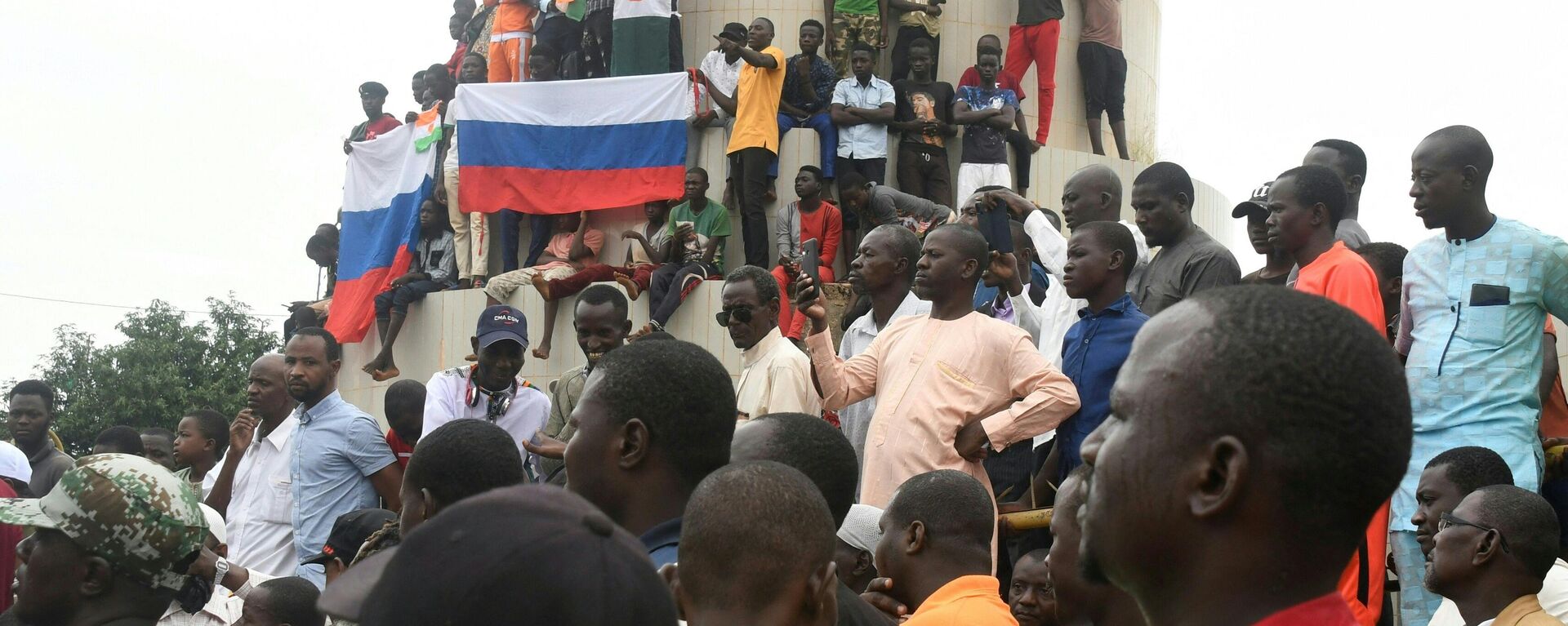
7 October 2022, 09:50 GMT
Meanwhile, the examples of the Central African Republic (CAR) and Mali have indicated that nations are capable of curbing the terror threat
once they replace western military instructors with Russian private contractors, such as in 2017 and 2021, respectively. The Malian government went even so far as to accuse the French military of
actively assisting terrorists and deliberately fracturing the country, which eventually led to bilateral rows and the withdrawal of France's forces in 2022. Simultaneously,
Niger and Burkina Faso kicked off anti-French protests accusing Paris of maintaining havoc in the Sahel. Moreover, the surge in violence in the Sahel was directly triggered by the US and French-led NATO invasion of Libya and the ousting of Muammar Gaddafi in 2011, which led to the subsequent collapse of the state and spillover of terrorist activities in neighboring nations.
There are apparently two reasons for the western military intervening in Africa under the guise of counter-terror activities. First, they want to keep Russia and China or any other competitors out of the continent, according to Professor Mustafa Mheta. Second, they strive to maintain access to Africa's vast untapped resources, markets and other assets.
Africa boasts
roughly 12% and 9% of the world’s oil and natural gas reserves, respectively, let alone large, high-grade deposits of rare earths. The continent's population is the fastest growing in the world with a share of working-age individuals steadily increasing, presenting potential to boost economic growth,
according to the Institute for Security Studies (ISS).
In addition, "there are 16 countries in Africa with free-market economies" with close to a billion people, which "represents an impressive market worth tapping in a variety of ways,"
argued the US Foreign Policy Research Institute (FPRI) last year, referring to Cape Verde, Ghana, Liberia, Senegal, Mali, Nigeria, Namibia, South Africa, Botswana, Benin, Malawi, Mozambique, Zambia, Mauritius, Kenya and Tanzania. "Consumer and business spending in Africa is expected to top $6.6 trillion by 2030, up from $4 trillion in 2015," FPRI remarked.
However, questions remain as to who will actually benefit from the continent's natural wealth and growing human resources if the US and its NATO allies continue to maintain a military presence in the region, a military presence which so far has failed to stem the terror threat and created nothing short of a factory for would-be putschists.
*Al-Shabaab is a terrorist organization banned in Russia and many other countries.
